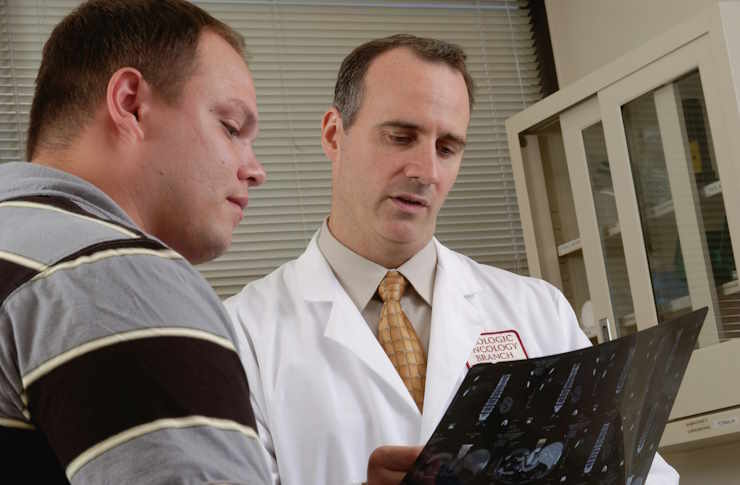Recognizing the Early Signs of Colon Cancer
Colon cancer often develops silently, but early warning signs can help with early detection. Symptoms like changes in bowel habits and persistent fatigue should not be ignored. Understanding these signs can lead to timely medical intervention and increase your chances. Recognizing the Early Signs of Colon Cancer

What Are the Early Signs of Colon Cancer?
Colon cancer can present subtle signs that are often mistaken for common gastrointestinal issues. Some of the most common early symptoms include:
- Changes in bowel habits: You may experience frequent diarrhea or constipation, or notice a change in the consistency of your stool.
- Blood in the stool: This can appear as bright red blood or darker stools, often indicating internal bleeding.
- Persistent abdominal discomfort: Pain, cramping, or bloating in the abdomen that does not go away can be a red flag.
- Unexplained weight loss: Losing weight without trying can sometimes be an early warning sign of colon cancer.
- Fatigue: Persistent tiredness or weakness, even with sufficient rest, can be linked to colon cancer, as the body diverts energy to fight the disease.
If you notice any of these symptoms, it is crucial to consult a doctor for further investigation.
Why Is Early Detection of Colon Cancer So Important?
Early detection is one of the most effective ways to improve the outcome of colon cancer treatment. The earlier cancer is detected, the easier it is to treat and the more likely it is that the treatment will be successful. Early-stage colon cancer is often localized within the colon, meaning it has not spread to other parts of the body, which significantly increases the effectiveness of treatments such as surgery and chemotherapy.
Moreover, early detection can often prevent cancer altogether. Screening for colon cancer, even in the absence of symptoms, can identify abnormal growths such as polyps, which can be removed before they turn into cancer.
When Should You See a Doctor for Colon Cancer Screening?
Doctors recommend that adults begin screening for colon cancer at age 45, though individuals with a family history of colon cancer or other risk factors may need to begin earlier. Colon cancer screening typically involves a colonoscopy, a procedure in which a flexible tube with a camera is used to examine the colon for abnormalities.
If you are experiencing any of the symptoms mentioned earlier, regardless of age, it is important to seek medical attention promptly. Your doctor can evaluate your symptoms, recommend appropriate tests, and guide you on the next steps.
Key Facts About Colon Cancer and Its Prevention
- Age: Colon cancer risk increases as you age, with most cases occurring in people aged 50 and older.
- Family history: Having a close relative diagnosed with colon cancer increases your own risk.
- Diet and lifestyle: Diets high in red or processed meats and low in fiber may increase the risk of developing colon cancer. Regular physical activity and maintaining a healthy weight are associated with a lower risk.
- Screening: Regular screenings, such as colonoscopies, are recommended for early detection, especially if you have risk factors.
How Can You Compare Providers for Colon Cancer Screenings?
In the United States, there are various options for colon cancer screening, and choosing the right provider can make a significant difference. Here’s a comparison of some key services to help you make an informed decision about where to get screened:
| Provider Name | Services Offered | Key Features/Benefits |
|———————|————————————-|———————————————-|
| Cleveland Clinic | Colonoscopy, Genetic Testing, Screening | Highly experienced medical staff, advanced technology |
| Mayo Clinic | Colonoscopy, Preventive Care, Risk Assessment | Comprehensive care, multiple screening options |
| American Cancer Society | Education, Screening Referrals, Support Services | Provides nationwide information, support, and resources |
While costs can vary by provider and location, most insurance plans cover colon cancer screenings starting at age 45, and Medicaid and Medicare also offer coverage for eligible individuals. It’s always a good idea to verify your coverage with your health insurance provider.
What Are Some Additional Tips for Colon Cancer Prevention?
Preventing colon cancer involves making lifestyle changes that promote overall digestive health. Some helpful tips include:
- Eat a balanced diet: Focus on whole grains, fruits, vegetables, and lean proteins while limiting processed meats.
- Exercise regularly: Engaging in physical activity reduces the risk of developing colon cancer and promotes overall well-being.
- Limit alcohol and tobacco use: Both smoking and excessive alcohol consumption increase the risk of colon cancer.
- Maintain a healthy weight: Being overweight or obese increases the risk of colon cancer, so maintaining a healthy weight is crucial for prevention.
While these tips can reduce your risk, regular screening is the most effective way to catch colon cancer early.
Colon cancer is a serious condition that requires attention, but understanding the early signs can lead to early intervention and better treatment outcomes. Regular screenings and a healthy lifestyle are key components in both preventing and detecting colon cancer at its earliest stages. If you notice any symptoms or are due for a screening, don’t hesitate to consult a healthcare provider.
The shared information of this article is up-to-date as of the publishing date. For more up-to-date information, please conduct your own research.
This article is for informational purposes only and should not be considered medical advice. Please consult a qualified healthcare professional for personalized guidance and treatment.




